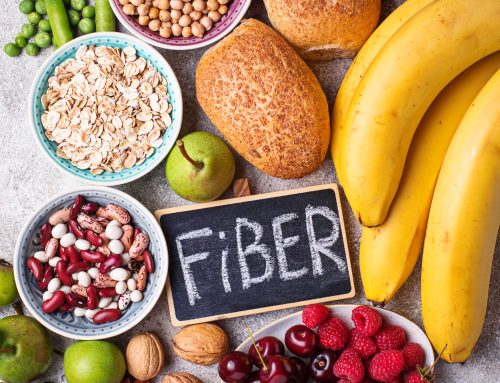What is the real cause of obesity? Many people focuses solely on eating too many calories, but a new study demonstrates that what matters more is food selection.
A perspective published in The American Journal of Clinical Nutrition argues the root causes of the obesity epidemic are more related to what we eat rather than how much we eat.
Synopsis of Study on the Cause of Obesity
• Public health messaging exhorting people to eat less and exercise more has failed to stem rising rates of obesity and obesity-related diseases.
• The energy balance model, which says weight gain is caused by consuming more energy than we expend, “restates a principle of physics without considering the biological mechanisms driving weight gain.”
• The carbohydrate-insulin model makes a bold claim: overeating doesn’t cause obesity; the process of getting fat causes overeating.
• The current obesity epidemic is due, in part, to hormonal responses to changes in food quality: in particular, high-glycemic load foods, which fundamentally change metabolism.
• Focusing on what we eat rather than how much we eat is a better strategy for weight management.
Cause of Obesity of Not Just Eating Too Much Food
The USDA’s Dietary Guidelines for Americans 2020 – 2025 tell us that losing weight “requires adults to reduce the number of calories they get from foods and beverages and increase the amount expended through physical activity.”
But, this approach to weight management is based on the century-old energy balance model which states that weight gain is caused by consuming more energy than we expend. In today’s world, surrounded by highly palatable, heavily marketed, cheap processed foods, it’s easy for people to eat more calories than they need, an imbalance that is further exacerbated by today’s sedentary lifestyles.
By this thinking, overeating, coupled with insufficient physical activity, is driving the obesity epidemic.
On the other hand, despite decades of public health messaging exhorting people to eat less and exercise more, rates of obesity and obesity-related diseases have steadily risen.
Analysis of Study
According to lead author Dr. David Ludwig, Endocrinologist at Boston Children’s Hospital and Professor at Harvard Medical School:
• The energy balance model doesn’t help us understand the biological causes of weight gain:
• During a growth spurt, for instance, adolescents may increase food intake by 1,000 calories a day.
• But does their overeating cause the growth spurt or does the growth spurt cause the adolescent to get hungry and overeat?
• In contrast to the energy balance model, the carbohydrate-insulin model makes a bold claim: overeating isn’t the main cause of obesity.
• Instead, the carbohydrate-insulin model lays much of the blame for the current obesity epidemic on modern dietary patterns characterized by excessive consumption of foods with a high glycemic load: in particular, processed, rapidly digestible carbohydrates.
• These foods cause hormonal responses that fundamentally change our metabolism, driving fat storage, weight gain, and obesity.
When we eat highly processed carbohydrates, the body increases insulin secretion and suppresses glucagon secretion. This, in turn, signals fat cells to store more calories, leaving fewer calories available to fuel muscles and other metabolically active tissues.
The brain perceives that the body isn’t getting enough energy, which, in turn, leads to feelings of hunger. In addition, metabolism may slow down in the body’s attempt to conserve fuel. Thus, we tend to remain hungry, even as we continue to gain excess fat.
To understand the obesity epidemic, we need to consider not only how much we’re eating, but also how the foods we eat affect our hormones and metabolism. With its assertion that all calories are alike to the body, the energy balance model misses this critical piece of the puzzle.
Click here to read more about the cause of obesity.







